Suchergebnisse für "Factsheet%3A Energietechnologien gestalten%2C die f%C3%BCr alle sinnvoll und nutzbar sind"
International VGB Fluidized Bed Boiler Operators Workshop
22. Mai 2017
Cracow, Poland
Operating experience with fluidized bed firing systems.
IEA Clean Coal Center Newsletter #76, 8/2013

Herausgeber: IEA Clean Coal Center (CCC)
Englisch, 8 Seiten
Downloads zur Publikation
IEA-SHC Task39 Newsletter No.14 - May 2014

Herausgeber: IEA-SHC Task39
Englisch, 10 Seiten
IEA - 4E "Bright Spark" Newsletter - December 2015

Herausgeber: IEA - 4E Bright Sparks
Englisch, 5 Seiten
Working document: The Biorefinery Fact Sheet (2014)
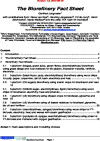
Version 1.0
Gerfried Jungmeier et al.
Herausgeber: IEA Bioenergie Task 42
Englisch, 48 Seiten
Downloads zur Publikation
Innovation in LARGE-SCALE
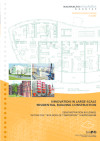
Demonstration buildings within the "BUILDING OF TOMORROW" subprogram.
4/2006
Herausgeber: BMVIT
Englisch, 6 Seiten
Downloads zur Publikation
Heating And Ventilation In The "building Of Tomorrow"
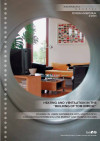
2/2004
Herausgeber: BMVIT
Englisch, 6 Seiten
Downloads zur Publikation
IEA Bioenergieprogramm 2010-2012 Task 42 Bioraffineriern
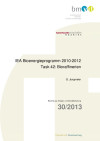
Schriftenreihe
30/2013
G. Jungmeier et al.
Herausgeber: BMVIT
Deutsch, 170 Seiten
Downloads zur Publikation
Innovationen im grossvolumigen Wohnbau
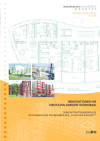
Demonstrationsgebäude im Rahmen der Programmlinie "Haus der Zukunft"
4/2006
Herausgeber: BMVIT
Deutsch, 6 Seiten
Downloads zur Publikation
Feeding Biogas Into The Austrian Natural Gas Grid
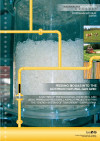
2/2006
Herausgeber: BMVIT
Englisch, 6 Seiten
Downloads zur Publikation
Synthesis Report: Mobilizing Sustainable Bioenergy Supply Chains (2015)
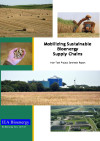
Herausgeber: IEABioenergy
Englisch, 170 Seiten
Downloads zur Publikation
Energieregionen der Zukunft
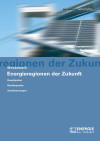
Ergebnisse des Wettbewerbs 2005 "Energieregionen der Zukunft"
Herausgeber: ÖGUT / BMVIT
Deutsch, 40 Seiten
Downloads zur Publikation
Monitoring der Leitprojekte aus Haus der Zukunft PLUS
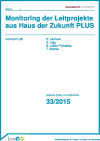
monitorPLUS
Schriftenreihe
33/2015
R. Lechner, B. Lipp, B. Lubitz-Prohaska, T. Steiner
Herausgeber: BMVIT
Deutsch, 61 Seiten
Downloads zur Publikation
Working document: "The Biorefinery Complexity Index" (2014)
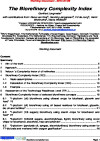
Gerfried Jungmeier et al.
Herausgeber: IEA Bioenergie Task 42
Englisch, 36 Seiten
Downloads zur Publikation
ÖKOinFORM Folder 2 - Ökologischen Baustoffoptimierung
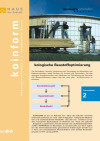
im Rahmen der Programmlinie Haus der Zukunft
J. Fechner, B. Lipp, R.Lechner
Herausgeber: BMVIT
Deutsch, 8 Seiten
Downloads zur Publikation
Broschüre Haus der Zukunft: Preisträger - Auszeichnungen - Anerkennungen 2000
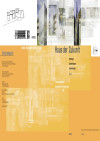
Herausgeber: BMVIT
Deutsch, 1 Seiten
Downloads zur Publikation
Das Schiestlhaus Am Hochschwab - Alpiner Stützpunkt In Passivhaustechnologie
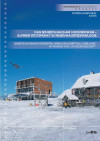
2/2005
Herausgeber: BMVIT
Deutsch, 6 Seiten
Downloads zur Publikation
Solarthermische Anlagen mit fortschrittlicher Speichertechnologie für Niedrigenergiegebäude
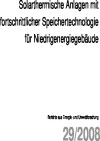
Schriftenreihe
29/2008
Ao. Univ.-Prof. Dipl.-Ing. Dr. techn. Wolfgang Streicher, DI(FH) Dr. techn. Andreas Heinz, DI Dagmar JAEHNIG, DI Dr. techn. Alexander THUER
Herausgeber: BMVIT
Deutsch, 97 Seiten
Downloads zur Publikation
Klimaneutralitätsfahrplan Feldkirch
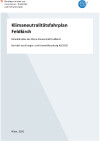
Klimafahrplan der Klima-Pionierstadt Feldkirch
Schriftenreihe
40/2025
Sebastian Stortecky, Ali Hainoun, Christina Connert
Herausgeber: BMIMI
Deutsch, 53 Seiten
Downloads zur Publikation
E3 Building
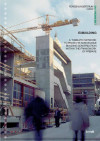
A thematic network to promote sustainable building constructio within the framework of PREPARE
1/2001
Herausgeber: BMVIT
Englisch, 6 Seiten
